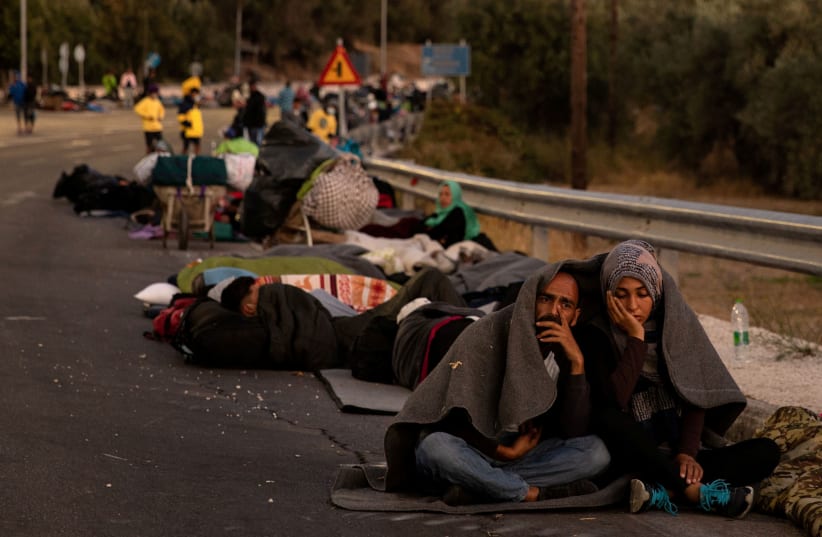More than 12,000 people, mostly refugees from Afghanistan, Africa and Syria, were left without shelter, proper sanitation or access to food and water by the fire that tore through Moria, Greece's biggest camp for migrants reaching its islands by sea.
No one was killed or hurt in the fire, which broke out after quarantine measures were imposed following the discovery of COVID-19 cases on the site.
So far, only 1,200 people have moved into the temporarily facility at Kara Tepe near the island's port of Mytilene, which was ready to host at least 5,000.
"They are still reluctant," said a police official on condition of anonymity. "Negotiations are ongoing."
Authorities have distributed flyers and sent text messages to migrants trying to convince them to move into the new tents, officials said.
One said migrants hoped to be allowed to leave the island and believed that living conditions in the temporary camp would be no better than at Moria, which aid groups had called appalling.
People crossing the new facility entrance were being tested for COVID-19 and so far 35 were found positive. Residents were afraid a coronavirus outbreak was looming with thousands of people sleeping rough and untested.
On Tuesday, six migrants were arrested over the Moria blaze. Another blaze, which broke out overnight near another migrant camp on the island of Samos, was put under control and three people were arrested.
Greece's conservative government, which took power last year, says it aims to replace open air tented camps with formal migrant centres with temporary housing, where entry and exit would be controlled.
"The recent fires ... demonstrate the need to immediately close the chaotic open migrant and refugee reception centres and to create closed, controlled centres which will offer humane conditions with double fencing, controlled entrance systems, surveillance and fire security systems," Migration Minister Notis Mitarachi told reporters in Lesbos.
The Moria inferno has put the migrant issue firmly back on the European agenda. European Union Council President Charles Michel visited Lesbos and promised more solidarity with the countries guarding Europe's borders.
Greek Prime Minister Kyriakos Mitsotakis said more "tangible" help was needed. Germany said it could take in up to 1,500 people stranded by the fire.
"European leaders should act quickly to bring the people stranded on Lesbos to safety," said Belkis Wille, senior crisis and conflict researcher at Human Rights Watch."They also need to fundamentally rethink the failed and inhumane policies that led to the creation of a sprawling, unsanitary and dangerous refugee camp in an EU country, rather than just building a replica of the same thing."
